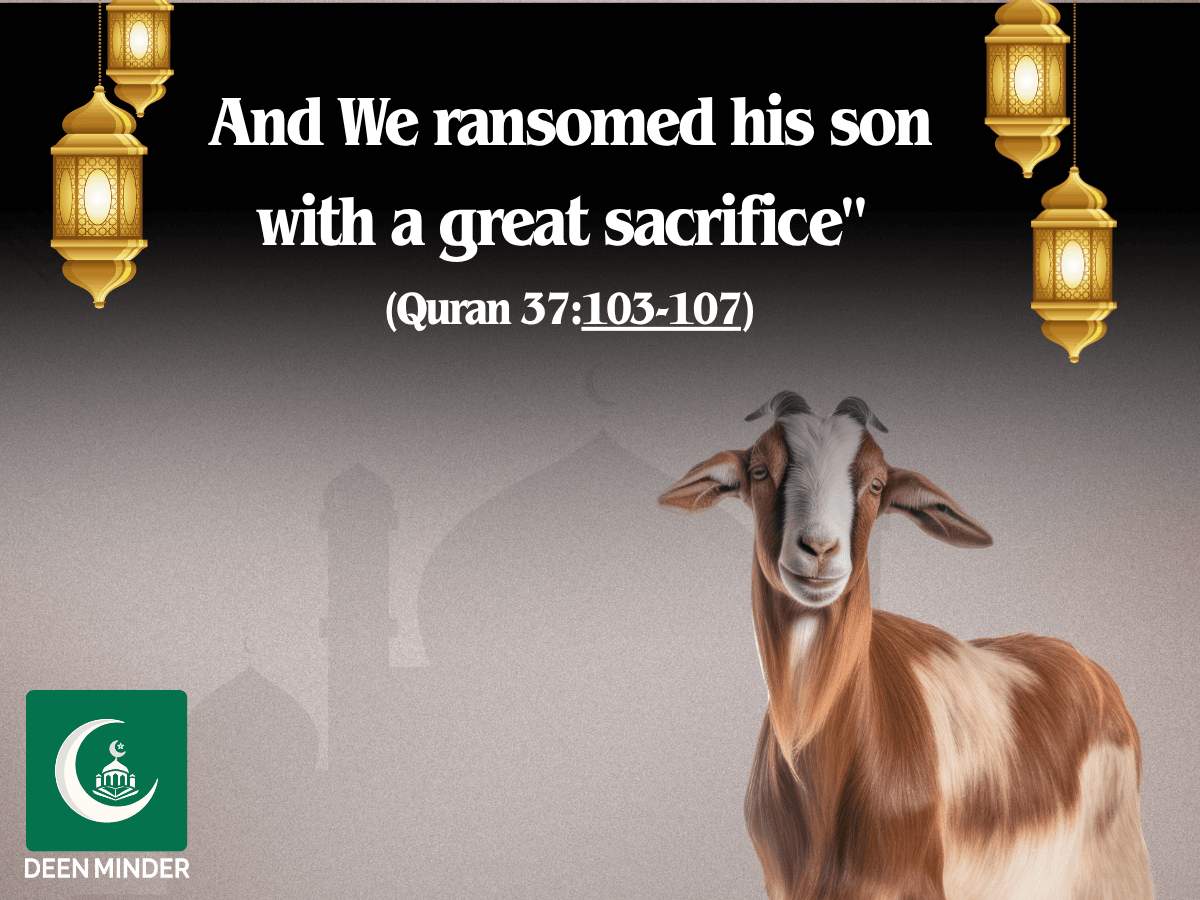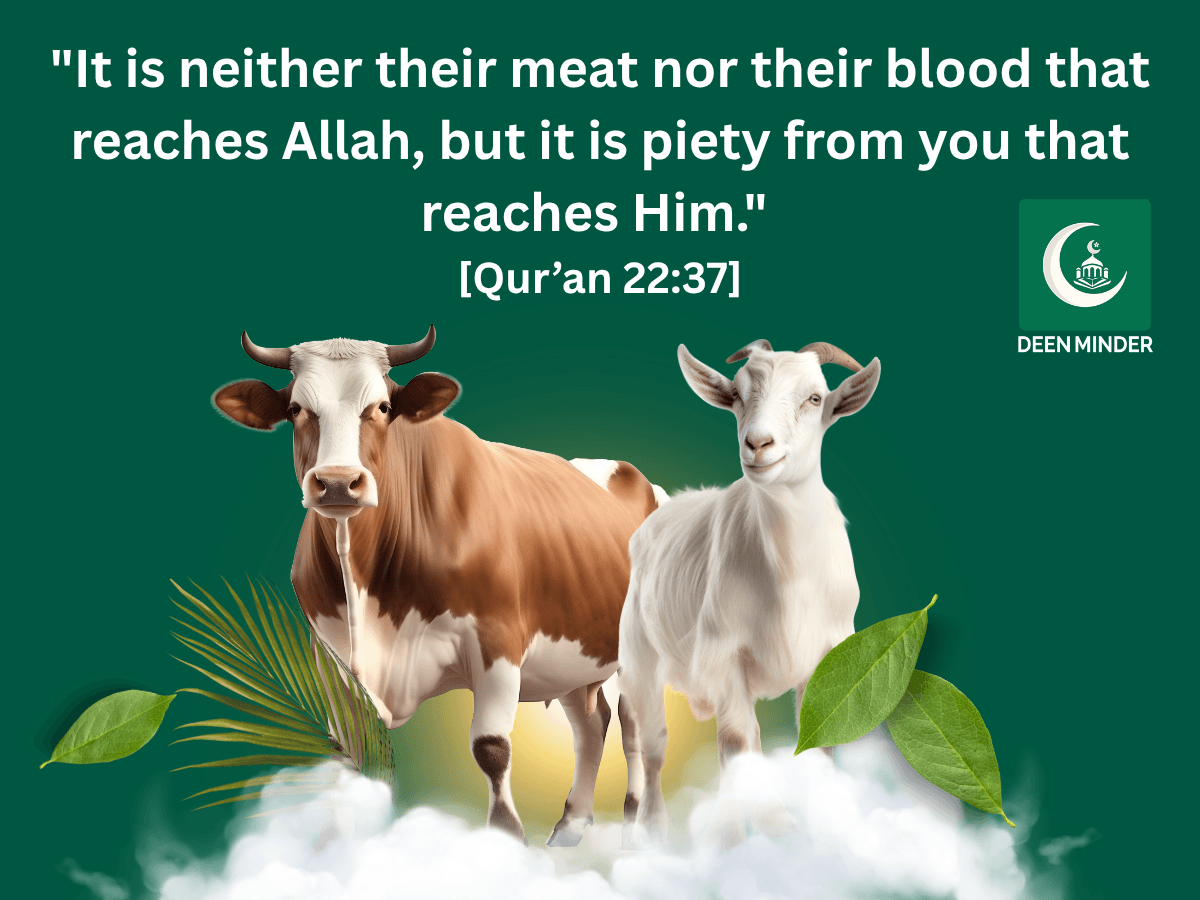Alhamdulilah, what a great day Eid Al Adha is! The day that we muslims dress in our finest clothes, smiling warmly, embracing one another after the prayer, slaughtering of animals, and distributing neatly packed portions of food and meat to our neighbors, the poor, and even strangers.
The streets come alive with takbeer that we chant (glorifying Allah), families reunite in joy, and we keep saying “Eid Mubarak” to one another. But upon all these celebrations, some of our Muslim brothers and sisters don’t know the story or reason behind it all, especially the children. This is why we need to share this guide about Eid Al Adha after reading it.
This article is a concise guide about Eid A Adha for ourselves, the next generation, for our non-Muslim colleagues, and even for Muslims who may only see Eid as a holiday and not as an act of worship rooted in sacrifice and deep obedience to Allah.
What is Eid Al Adha in Islam?
Eid Al Adha, also known as “ʿEid an-Naḥr” (the Festival of Sacrifice), is one of the two major Islamic celebrations we observe in Islam. It is celebrated on the 10th of Dhul-Hijjah, the final month in the Islamic lunar calendar, immediately after the Day of Arafah. The two festivals we have in Islam are Eid Al Adha and Eid Al Fitr. We are not to engage in any other festivals aside from these two. Anas ibn Malik reported that
The Messenger of Allah, peace and blessings be upon him, arrived in Medina during two days which they were celebrating (festivals during the time of ignorance and disbelief).
The Prophet said, “What are these two days?” They said, “We would celebrate these two days in the time of ignorance.”
The Prophet said, “Verily, Allah has replaced these two days with two better days: Eid al-Adha and Eid al-Fitr.” (Sunan Abi Dawud 1134)
In its essence, Eid Al-Adha marks one of the greatest tests of faith in human history, the story of Prophet Ibrahim (عليه السلام) and his son Ismail (عليه السلام). When Allah commanded Prophet Ibrahim to sacrifice his beloved son, both father and son submitted without hesitation. At the final moment, Allah replaced Ismail with a ram, teaching us a great lesson.
And when they had both submitted and he put him down upon his forehead, We called to him, “O Abraham, You have fulfilled the vision.” Indeed, We thus reward the doers of good.
Indeed, this was the clear trial. And We ransomed him with a great sacrifice, And We left for him [favorable mention] among later generations. (Quran 37:103-108)
You can read the full story of the origin of Hajj here.
Timeless lessons from the story of Prophet Ibrahim and Ismail in relation to Eid Al Adha
- Sincerity: Prophet Ibrahim’s intention was purely for Allah. He did not question, hesitate, or bargain.
- Trust (reliance on Allah): Prophet Ismail’s submission as a son reflects the strength of faith instilled by a righteous father.
- Obedience: Both father and son submit to the will of Allah without hesitation
- Allah’s reward: Just as Ismail was spared, Allah compensates Prophet Ibrahim with a ram, which led to the animals we Muslims are slaughtering today.
Why do Muslims sacrifice animals on Eid?
So, when someone asks you, “Why do Muslims sacrifice animals on Eid?” from what you have learned so far in this guide about Eid Al Adha, you will be able to answer the person now that the act is rooted deeply in divine revelation and the prophetic example of our Prophet Ibrahim, known as the Father of Faith.
It is a revival of the legacy of Prophet Ibrahim, not a ritual for festivity or meat consumption. It is an act of devotion, a revival of the Sunnah, and a reminder that submission to Allah must be above all else. Allah also made it clear to us that the Qurbani, the act of sacrificing an animal, is not about meat or blood. Of course, He doesn’t need it. He only wants our piety, submission, and obedience. Allah says…
“It is neither their meat nor their blood that reaches Allah, but it is piety from you that reaches Him.” (Surah Al-Hajj, 22:37)
The story behind the sacrifice on Eid Al Adha was established in the Qur’an when Allah tested Ibrahim’s faith by commanding him in a dream to sacrifice his son:
“So We gave him good tidings of a forbearing boy. And when he reached with him [the age of] exertion, he said, ‘O my son, indeed I have seen in a dream that I [must] sacrifice you, so see what you think.’ He said, ‘O my father, do as you are commanded. You will find me, if Allah wills, of the steadfast.’” Surah As-Saffat 37:101–102
This moment wasn’t just about the act of sacrifice, it was about complete obedience and total surrender to the will of Allah. And just as Ibrahim (عليه السلام) was about to carry out the command, Allah replaced Ismail (عليه السلام) with a ram and declared the test successful.
“And We ransomed him with a great sacrifice.” Surah As-Saffat 37:107
This is the foundation of Eid Al Adha. It’s a day to celebrate the firm submission of our two beloved Prophets and the supreme mercy of Allah.
Is Eid Al Adha the greatest day of Hajj?
There’s no doubt that the day of Arafah is a great day among the days of Hajj, and some people think that it is the greatest day of Hajj, while it is not. The day of Eid is the greatest day of Hajj. The Eid day, also known as Yawm An-Nahr” (the Day of Sacrifice), when the slaughtering of animals starts from is the greatest day of Hajj. Allah made this clear in the Quran…
And [it is] an announcement from Allah and His Messenger to the people on the day of the greater pilgrimage (yawm al-nahr) that Allah is disassociated from the disbelievers, and [so is] His Messenger. (Quran 9:3)
From the tafsir of Ibn Kathir, it says that the above verse means that it is preface warning to the people from Allah and His Messenger that the day of Sacrifice, the best and most apparent day of the Hajj rituals, during which the largest gathering confers: That Allah is free from (all) obligations to the Mushrikin and so is His Messenger.) also free from all obligations to them. Allah next invites the idolaters to repent.
Our Prophet ﷺ also affirmed this. He said:
The greatest day in Allah’s sight is the day of sacrifice (Sunan Abi Dawud, 1765)
Some scholars explained that what makes Eid Al-Adha the greatest day is that it entails a great magnitude of righteous deeds performed on this day, by those performing Hajj and those who are not. Let’s learn some of the worship on this great day.
Rites of Hajj performed on Eid Al-Adha
On the 10th of Dhul Hijjah, pilgrims perform a series of massive rituals that are the climax of the entire Hajj journey. These include:
- Stoning the pillar
- Slaughtering the sacrificial animal
- Shaving the hair for men and shortening it for women
- Tawaf (circumambulation around Ka’bah)
- Sa’i between Safa and Marwah
For those who are not doing the Hajj, they will perform the following too
- Offering the Eid Prayer
- Slaughtering the sacrificial animal (see the age requirement and conditions for accepted animals)
- Saying Takbeer
- Engaging in charity and many more
Is Eid Al-Adha just about meat?”
Many assume that Eid Al-Adha is simply a festival of meat, buy an animal, have it slaughtered, fill the freezer, and host a barbecue. But this thinking misses the heart of the matter. Allah says in Surah Al-Hajj that…
“It is neither their meat nor their blood that reaches Allah, but it is piety from you that reaches Him.” [Qur’an 22:37]
The act of Qurbani is not about feasting only, it is a symbol of submission. When Prophet Ibrahim (عليه السلام) placed his beloved son for sacrifice, he was offering something like his heart to Allah. That is the essence of this Eid. The piety within us in offering the sacrifice and how much we are striving to become a better version of ourselves, and a means in drawing closer to Allah through obedience, just as Prophet Ibrahim did.
How to make the most of Eid Al-Adha (practical tips and reminders)
From this concise guide about Eid A Adha, let us benefit ourselves with some practical tips and heartfelt reminders that can help us maximize the blessings of this noble Eid.
- Increase in dhikr and takbeer
- Offer the best animal you can afford
- Be generous by sharing food, meat, and other gifts you are capable of with your close ones and the poor
- Use the medium to uphold ties of kinship by meeting together as a family
- Pray for the Ummah as a whole
As you prepare for Eid al Adha, remember this concise guide about Eid Al Adha is not just an ordinary manual but a path to attain spiritual excellence and the best act of worship. Once again, this festival invites you to step closer to Allah through sacrifice, generosity, and reflection.
May Allah accept your sacrifices and worship, forgive your shortcomings, and grant you and your loved ones a blessed and joyful Eid Al-Adha. Eid Mubarak


